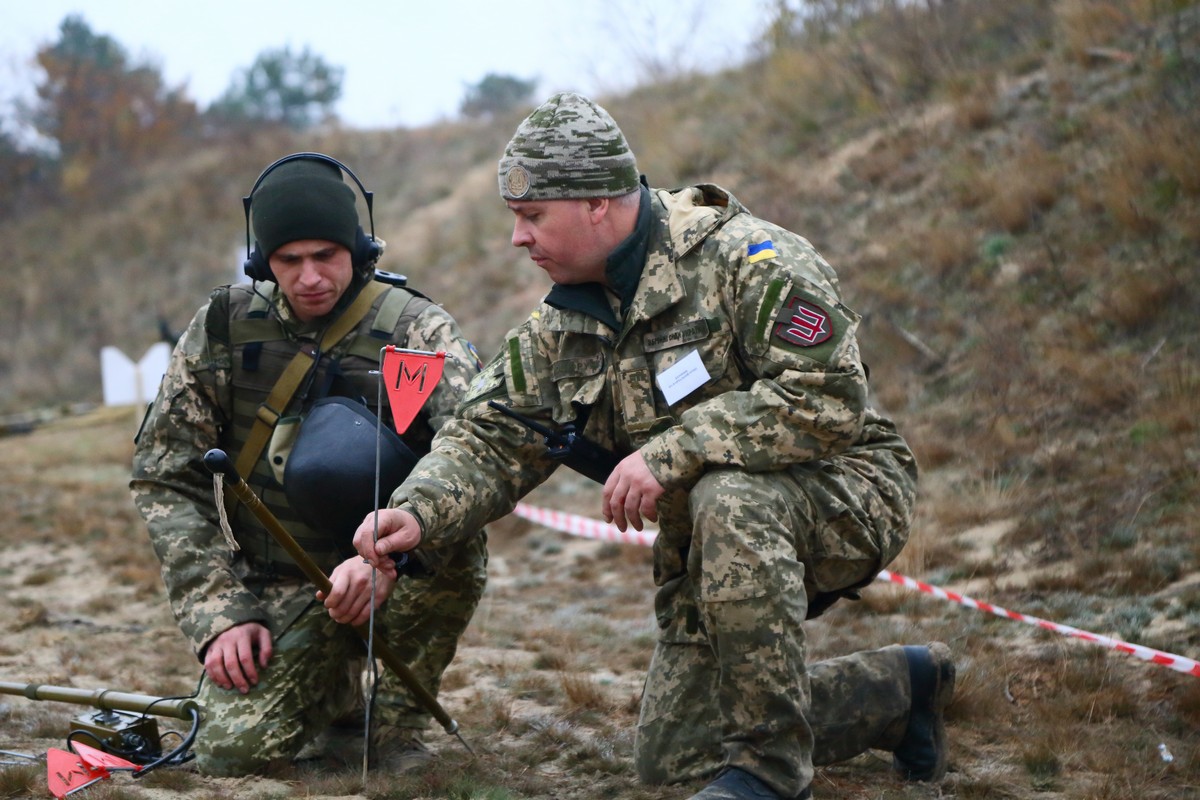Deadly gifts: Unexploded mines are plaguing Ukraine amid war with Russia
Far beyond the frontlines of the war in Ukraine, danger lurks in everything from common household items to children’s toys to public parks, many of which are littered with unexploded ordnance left behind by Russian forces who aim to sow fear and carnage across the war-torn country.
Few items are out of bounds of being mined, and the effects are often deadly. Many of the mines explode by the presence, proximity, or contact of a person, and can kill or injure citizens long after armed conflicts end.
“Ukraine is severely contaminated with landmines and explosive remnants of war … from the armed conflict that began in 2014 and surged with Russia’s full-scale invasion in February 2022,” according to Human Rights Watch. A 1997 Mine Ban Treaty, which prohibits the use of antipersonnel mines, is largely being ignored in Ukraine, the rights group states.
Ukraine’s emergency services estimate that around 30% of the entire territory of the country today has been mined, roughly twice the landmass of Austria. Ukraine today is currently one of the most mined countries in the world, ahead of the war-ravaged nations Afghanistan and Syria, according to Mines Advisory Group, a British charity that clears unexploded mines internationally.
“We have about 200,000 square kilometres of our land mined,” Ukrainian President Volodymyr Zelenskyy wrote in a social media post this month. “This is not war, this is terrorism,” he said.

Mină Ucraina Pericol
Sursă: Jan Anthony Schneidereit / Ukrainian Deminers Association
Zelenskyy had previously stated it will take Ukraine “decades” to demine the entire country. “Terrorists deliberately try to leave lots of death traps behind … mining buildings, cars, and infrastructure,” he said in a national address late last year.
Mines have indeed become a major issue plaguing the war-torn nation. According to Ukraine’s public monitoring and control centre, thousands of munitions remain undetonated in the country – and the consequences can be fatal
This spring, a man returning from a fishing trip on the Inhulets River in Ukraine’s Kherson region stepped on a mine, instantly killing him. This summer, a car carrying two policemen blew up after hitting a mine in the Chernihiv region. One of the officers, a 39-year-old father of three, Oleksiy Zhovtyk, died on the spot. His colleague was hospitalised with his injuries.
In a blog post to mark the one-year anniversary of Russia’s full-scale invasion of Ukraine, Darren Cormack, the CEO of Mines Advisory Group wrote that, “it is already clear that landmines and unexploded ordnance will threaten and endanger the lives of Ukrainian people for years to come.”
Pervasive mines left behind in conflict zones can indeed prove deadly, but they can also have toxic impacts on the environment. Many of the unexploded ordnance contain heavy metals, toxic chemicals and propellants, which can leach into soil, contaminate groundwater and air and sometimes end up in the human food chain.
“You can’t plant vegetables on these territories that have been de-mined, it’s necessary to give the land time to recover naturally and after that to take soil samples and send them to the laboratory,” said Julia Markhel, the leader of Let’s do it Ukraine, an environmental group in Ukraine. “Only then can food grown on these lands be safe.”

Ucraina, mine, operațiune de deminare;
Sursă: Jan Anthony Schneidereit / Ukrainian Deminers Association
Markhel emphasised that long after areas such as forests have been cleared of mines, fauna and flora – such as mushrooms and berries – that grow in those areas often cannot be safely consumed. The same applies to agricultural land, she said.
“We cannot talk about … full recovery at the moment,” she added. “This is too long a period of hostilities in one territory. Animal and plant life have suffered beyond belief and are on the verge of extinction.”
Photo: Ukraine’s Ministry of Defence


